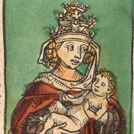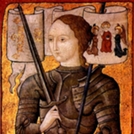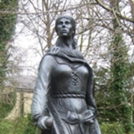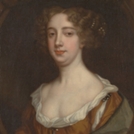-

Hypatia (c. 350 - 411 AD)
Hypatia was a mathematician, philosopher, and astronomer in Alexandria, Egypt. She is believed to have collaborated with her father, Theon, in arranging Euclid and Ptolemy’s work. She later became head of the Neoplatonic School at Alexandria, where she taught philosophy and astronomy before being murdered for her role in advising the Roman governor Orestes.
-

Pope Joan (c. 850 AD)
Pope Joan disguised herself as a man and used her extraordinary intellect to climb through the church hierarchy and became Pope. However, her reign was short-lived when clergy noticed her give birth during a procession; she was likely killed thereafter. To this day, the Vatican avoids that street and now “tests” the anatomy of potential Popes. Scholars now debate: Truth or Fiction?
-

Joan of Arc (1412 - 1431)
Joan of Arc is a Roman Catholic Saint and a heroine of France. She was known for her military leadership and strategy during the Hundred Years’ War between France and England. At age 19 Joan was captured and charged with heresy and cross-dressing. (She kept her hair short for battle, and preferred wearing male military clothing to prevent rape.) She was found guilty and was burned at the stake.
-

Grace O'Malley (c.1530 - 1603)
Grace O'Malley was an Irish rebel pirate queen whose history is now deeply comingled with folklore. This much we know: she was a remarkable sailor and for many years she controlled the seas of Western Ireland. The few times that she was captured, she escaped, and when she didn't receive a prompt response from Queen Elizabeth, she simply sailed to London and demanded one in person. With a dagger.
-

Aphra Behn (1640 - 1689)
Aphra Behn was a playwright and poet, and likely the first English woman to become a professional writer. Her 1688 novel Oroonoko explores slavery, racism, and gender, well ahead of her time.
In the words of Virginia Woolf: “All women ought to let flowers fall upon the tomb of Aphra Behn […] for it was she who earned them the right to speak their minds.”